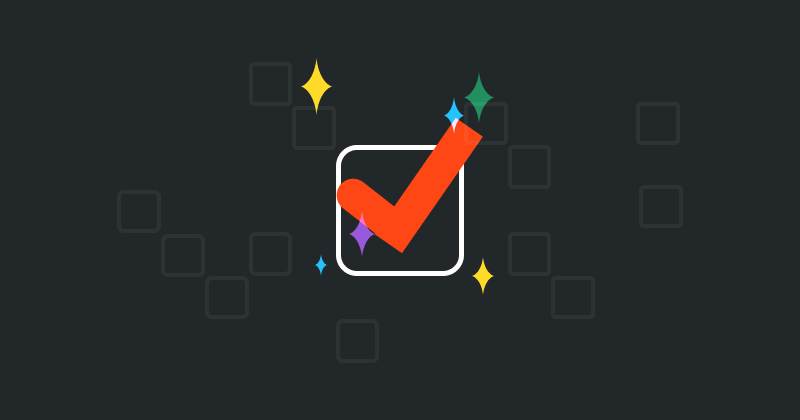
AI for Employment Lawyers in 2026: Transforming Legal Practices

Employment law is constantly evolving, which makes staying compliant no small task.
Between changing labor laws, new workplace policies, and high-stakes settlement agreements, the contract review workload adds up fast. That’s why many firms are turning to employment law AI tools like Spellbook to streamline redlining, flag risks, and ensure consistency across employment agreements.
These AI tools for reviewing settlement release agreements and other critical documents can help employment lawyers move faster without sacrificing accuracy. Whether you're drafting non-compete clauses, updating handbooks, or reviewing severance packages, employment law tools like Spellbook offer built-in compliance checks, benchmarking, and automated suggestions—all within Microsoft Word.
Of course, AI isn't here to replace legal judgment. But for those in AI-powered legal jobs, it’s an edge that frees up time for higher-value tasks like advising clients, resolving disputes, and navigating complex workplace regulations with confidence.
What This Guide Covers
- How AI fits into employment law today
- Legal and ethical requirements for AI use
- Core AI features employment lawyers rely on
- Real-world applications across employment agreements
- Limitations and risks lawyers must manage
- Frequently asked questions about AI in employment law
{{cta-surprise-red}}
Legal Framework for AI in Employment Law
We now see an increased use of AI tools and AI’s growing potential integration into employment law. However, its use comes with strict legal and ethical considerations, particularly around data privacy, security, and fairness. To navigate these challenges, employment lawyers must take a few key points into consideration:
AI use in employment law must comply with strict privacy, security, and fairness standards.
1. Data Privacy and Employee Information
Employment contracts contain sensitive personal data such as:
- Compensation details
- Performance records
- Medical or leave information
Key regulations include:
- GDPR (EU): Requires clear consent and purpose limitation
- CCPA (California): Grants access, correction, and deletion rights
AI systems must clearly define how employee data is processed and stored.
2. Security and Breach Risk
Employment law firms are high-value targets for cyber threats due to:
- Personally identifiable information (PII)
- Confidential settlement agreements
- Arbitration and termination records
A single breach can lead to:
- Regulatory penalties
- Client lawsuits
- Reputational damage
AI tools must meet enterprise-grade security standards to be viable in employment law.
3. Bias and Ethical Use of AI
AI tools learn from historical legal data, which can introduce bias.
Example risk:
An AI trained on contracts from states where non-competes are common may suggest unenforceable language in jurisdictions where they are restricted.
Best practice requires:
- Diverse and legally vetted training data
- Lawyer-controlled outputs
- Human review of all AI suggestions
AI should assist legal judgment, but certainty not replace it.
Key Features of AI Tools for Employment Lawyers
AI tools have features that speed up contract drafting and contract reviews, automating tasks and improving negotiation outcomes. By making it easier to draft, review, and spot inconsistencies in contracts, AI can significantly improve your firm’s productivity. Here’s a closer look at typical AI tool features and how they benefit employment lawyers:
- AI-powered Recommendations: During contract review, AI can flag clauses and language in contracts that might pose legal, financial, or operational risks. For example, it can detect ambiguous terms, non-standard phrasing, or omissions that may lead to disputes. It then suggests the appropriate revisions or additions to eliminate risks. It also identifies provisions requiring further negotiations and explains any measures needed to ensure contracts are comprehensive and enforceable.
- Document review and automation: AI can automate contract review processes, providing instant redlined suggestions, flagging potential risks and inconsistencies, and suggesting optimal language alternatives where appropriate. For example, Spellbook can flag ambiguous severance terms in an employment contract and recommend phrasing that aligns with legal standards while maintaining the original intent.
- Legal compliance monitoring: AI tools like Spellbook can identify missing clauses and close language gaps quickly with auto-generated contract improvements. It compares contracts against legal and industry benchmarks to highlight deviations that might introduce vulnerabilities.
Applications of AI in Employment Law
AI has a wide range of applications in employment law that benefit lawyers by enhancing their efficiency and effectiveness. Automated processes, improved document consistency, and compliance with labor regulations are just some of the many benefits you can gain using AI tools like Spellbook.
Here’s a closer look at how you can apply AI in employment law:
Automating Employment Contract Drafting
AI tools generate first-pass drafts using approved templates, ensuring consistent language across confidentiality, termination, and probation clauses.
Keeping Contracts Compliant With Changing Laws
AI can identify outdated language affected by:
- Minimum wage changes
- Non-compete restrictions
- Paid leave requirements
This allows lawyers to update agreements efficiently without manual research for each contract.
Reviewing Severance and Settlement Agreements
AI analyzes severance terms, release language, and dispute provisions to:
- Spot inconsistencies
- Reduce enforceability risks
- Ensure required protections are included
Drafting Workplace Policies and Handbooks
AI helps produce clear, enforceable policies aligned with:
- Anti-discrimination laws
- Remote work standards
- Industry-specific regulations
Ensuring Consistency in Compensation and Benefits
AI tools can flag discrepancies in:
- Salary structures
- Bonus terms
- Severance formulas
This reduces exposure to wage disputes and inequitable treatment claims.
Limitations and Challenges of AI in Employment Law
AI improves efficiency, but it is not autonomous legal decision-making.
Key Challenges to Manage
- Bias risk: Historical data may reflect outdated practices
- Jurisdiction complexity: Laws vary widely and change often
- Privacy obligations: Employee data must remain protected
- Interpretation gaps: AI may miss nuanced legal intent
- Accountability: Lawyers remain responsible for outcomes
The safest approach is AI-assisted drafting with human oversight.
Why Employment Lawyers Use Legal-Specific AI Tools
Legal-specific AI tools differ from general AI platforms by offering:
- Clause-level intelligence
- Compliance-aware drafting
- Secure document handling
- In-Word workflows lawyers already use
This makes them practical for real employment law work, not just research.
Try Spellbook For Employment Law Processes
Spellbook offers benefits specifically for legal work that set it apart from general AI tools such as ChatGPT, including clause generation, compliance monitoring, and automated alignment with industry standards, helping employment lawyers operate more efficiently.
Employment lawyers using Spellbook spend less time on tedious contract drafting and review and more time advising clients. With AI-assisted contract automation, you can reduce errors and streamline your work. Try Spellbook today and transform how you practice employment law.
{{cta-surprise-red}}
Key Takeaways
- AI helps employment lawyers reduce drafting and review time
- Legal compliance and ethics must guide AI use
- AI works best as a drafting and review assistant
- Human legal judgment remains essential
- Legal-specific AI tools provide the most value
Frequently Asked Questions
Can small employment law firms benefit from AI?
Yes. AI tools help small firms scale capacity, improve consistency, and compete with larger firms without increasing headcount.
Is AI for employment lawyers expensive?
Not necessarily. Most legal AI tools use subscription pricing, making them accessible to firms of all sizes.
Are AI tools secure enough for employment law?
Security depends on the provider. Lawyers should look for strong privacy controls, audits, and clear data-handling policies.
Is it ethical for employment lawyers to use AI?
Yes, when used responsibly. Ethical AI use requires transparency, bias awareness, data protection, and lawyer oversight.
Thank you for your interest! Our team will reach out to further understand your use case.







